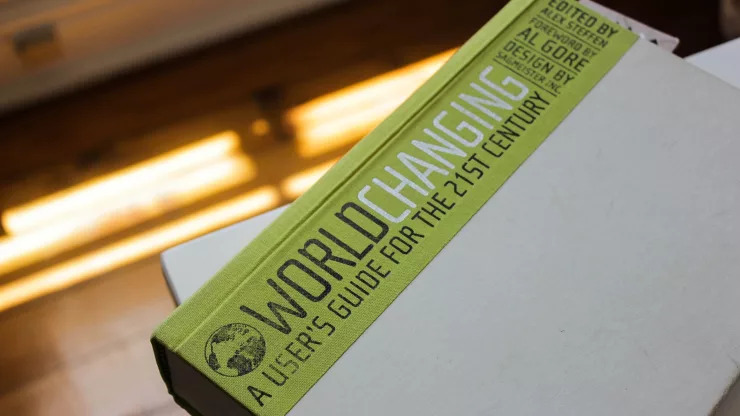Why Communication Skills Matter
Effective communication skills are an essential component for career success.
Whether you are a new graduate starting your first job or an experienced professional looking to advance your career, mastering communication skills is crucial to achieving your goals.
The ability to communicate effectively with colleagues, clients, and stakeholders can help you build strong relationships, foster collaboration, and enhance your professional reputation.
In today’s fast-paced and ever-changing work environment, communication skills are more important than ever. Employers value employees who can communicate effectively and efficiently.
Effective communication is essential in building trust, resolving conflicts, and achieving common goals. By mastering communication skills, you can become a more effective leader, build stronger relationships, and achieve greater success in your career.
Jump to Section
Understanding the Basics of Effective Communication
Effective communication involves more than just speaking and listening. It requires understanding the needs and perspectives of others, being clear and concise in your communication, and using the appropriate tone and language for the situation.
To communicate effectively, you need to be able to convey your message in a way that is easily understood by your audience.
Some of the key elements of effective communication include:
- Clarity: Be clear and concise in your communication, and use simple language that is easy to understand.
- Active listening: Listen carefully to what others are saying, and ask clarifying questions to ensure you understand their perspective.
- Empathy: Try to understand the needs and perspectives of others, and tailor your communication to their needs.
- Non-verbal communication: Be aware of your non-verbal cues, such as facial expressions and body language, and use them to enhance your message.
Overcoming Communication Barriers in the Workplace
Communication barriers can be a major obstacle to effective communication in the workplace. These barriers can include language differences, cultural differences, and personal biases.
To overcome these barriers, it is important to be aware of them and to take steps to address them.
Some strategies for overcoming communication barriers include:
- Active listening: Listen carefully to what others are saying, and ask clarifying questions to ensure you understand their perspective.
- Tailoring your communication: Be aware of language and cultural differences, and tailor your communication to the needs and preferences of your audience.
- Avoiding assumptions: Avoid making assumptions about others based on their background or personal characteristics.
- Building relationships: Build strong relationships with colleagues and stakeholders, and work to establish trust and rapport.
Developing Active Listening Skills for Career Success
Active listening is one of the most important communication skills for career success. It involves listening carefully to what others are saying, asking clarifying questions, and responding in a way that shows you understand their perspective.
Active listening can help you build strong relationships, foster collaboration, and enhance your professional reputation.
Some strategies for developing active listening skills include:
- Paying attention: Focus on the speaker and avoid distractions.
- Asking questions: Ask clarifying questions to ensure you understand the speaker’s perspective.
- Paraphrasing: Repeat back what the speaker has said in your own words to show you understand their perspective.
- Avoiding interruptions: Avoid interrupting the speaker, and wait until they have finished speaking before responding.
Enhancing Your Verbal Communication Skills
Verbal communication is another important component of effective communication in the workplace. It involves speaking clearly and concisely, using appropriate language and tone, and adapting your communication to the needs and preferences of your audience.
Some strategies for enhancing your verbal communication skills include:
- Being clear and concise: Use simple language and avoid jargon and technical terms.
- Using appropriate tone: Use a tone that is appropriate for the situation, and be mindful of your audience’s preferences.
- Adapting to your audience: Tailor your communication to the needs and preferences of your audience.
- Practicing: Practice your verbal communication skills by rehearsing presentations and speeches, and seeking feedback from colleagues.
Mastering Non-Verbal Communication for Professional Growth
Non-verbal communication is an often-overlooked aspect of communication in the workplace, but it can be just as important as verbal communication. Non-verbal cues, such as facial expressions, body language, and tone of voice, can convey a lot of information about your attitude and emotions.
Some strategies for mastering non-verbal communication include:
- Being aware of your body language: Be aware of your posture, facial expressions, and gestures, and use them to enhance your message.
- Using appropriate tone of voice: Use a tone that is appropriate for the situation, and be mindful of your audience’s preferences.
- Maintaining eye contact: Maintain eye contact with your audience to convey confidence and engagement.
- Avoiding distractions: Avoid distracting behaviors, such as fidgeting or looking at your phone, that can detract from your message.
Communicating with Confidence and Assertiveness
Confidence and assertiveness are important qualities for effective communication in the workplace. They can help you convey your message more effectively, build trust and respect, and achieve your goals.
Some strategies for communicating with confidence and assertiveness include:
- Being clear and concise: Use simple language and avoid ambiguity.
- Using confident body language: Stand up straight, maintain eye contact, and use gestures to convey confidence.
- Being assertive: Speak up for yourself and your ideas, and express your opinions clearly and confidently.
- Handling criticism: Respond to criticism in a constructive way, and use it as an opportunity to learn and grow.
Building Strong Relationships through Communication
Strong relationships are essential for career success, and effective communication is a key factor in building those relationships. By communicating effectively with colleagues, clients, and stakeholders, you can build trust, foster collaboration, and enhance your professional reputation.
Some strategies for building strong relationships through communication include:
- Being respectful and professional: Treat others with respect and professionalism, and avoid negative or confrontational behavior.
- Listening actively: Listen carefully to what others are saying, and show that you understand their perspective.
- Being empathetic: Try to understand the needs and perspectives of others, and tailor your communication to their needs.
- Building rapport: Build strong relationships with colleagues and stakeholders by being friendly, approachable, and helpful.
FAQ
What are the most important communication skills for career success?
The most important communication skills for career success include active listening, verbal communication, non-verbal communication, and confidence/assertiveness.
How can I improve my communication skills?
To improve your communication skills, you can practice active listening, work on your verbal and non-verbal communication, and seek feedback from colleagues and mentors.
What are some common communication barriers in the workplace?
Common communication barriers in the workplace include language differences, cultural differences, personal biases, and distractions.

With a deep passion for personal development, Ben has dedicated his career to inspiring and guiding others on their journey towards self-improvement.
His love for learning and sharing knowledge about personal growth strategies, mindfulness, and goal-setting principles has led him to create My Virtual Life Coach.
Contact Ben at [email protected] for assistance.




